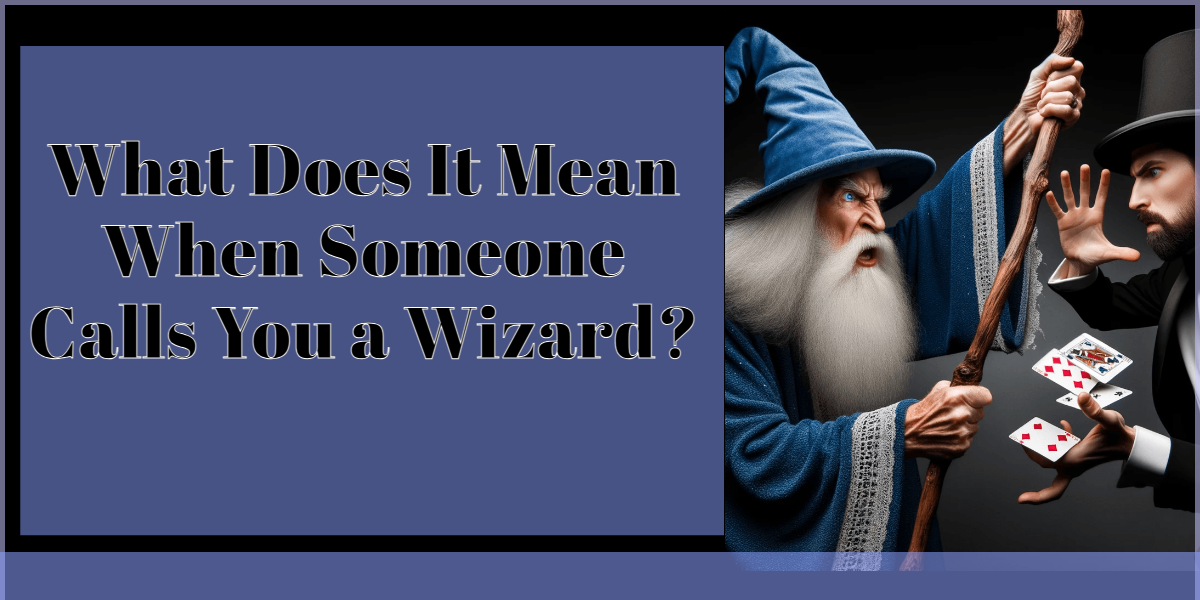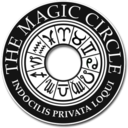
What Does It Mean When Someone Calls You a Wizard?
Have you ever been so adept at something that people likened your skills to magic? In the world of compliments, being called a wizard is akin to being acknowledged as a master in your field. But what does this term really mean, and where does it come from?
Personal Example
People often call me a wizard because I’m a close-up magician. It’s easy to see why – the first time someone sees magic up close, it’s easy to believe in spellcasting and all that magical stuff. But honestly, I’m no wizard. I can’t turn water into wine or cast spells.
I’m just someone who’s really good at magic tricks. I’ve spent a lot of time learning how to use my hands in a way that makes the impossible seem real. It’s all about quick moves, distracting the audience at just the right moment, and understanding how people think. Every trick is a mix of these skills, all aimed at creating a moment of pure wonder.
That leads us to the question what is the difference between a wizard and a magicain?
What is the difference between a Wizard and a Magician?
The terms “wizard” and “magician” are often used interchangeably, but they refer to different concepts, especially in the realms of mythology, fantasy, and entertainment. Here’s a breakdown of their distinctions:
Wizard
Mythological and Fantasy Context: Wizards are often associated with mythology and fantasy literature. They’re considered to be wise and old, possessing supernatural powers.
Magical Powers: Wizards are believed to have innate magical powers. They can cast spells, brew potions, and sometimes have control over natural elements.
Appearance and Attire: They are often depicted wearing robes and hats, with long beards, signifying age and wisdom.
Role: In stories, wizards often serve as mentors or guides to the main characters, offering wisdom and magical assistance.
Examples: Gandalf from “The Lord of the Rings” and Dumbledore from “Harry Potter” are classic examples of wizards.
Magician
Entertainment Context: Magicians are real-life performers who entertain audiences with tricks, illusions, and sleight of hand. They don’t possess magical powers but are skilled in creating illusions.
Skills and Techniques: Their “magic” is based on practiced skills, including sleight of hand, misdirection, and psychological manipulation to make the impossible seem real.
Appearance and Attire: Magicians often wear formal attire like suits or tuxedos and are known for their polished, professional appearance.
Role: They perform in various settings, including stages, parties, and street performances, aiming to entertain and amaze audiences.
Examples: David Copperfield, Darren Brown, Dynamo.
The Historical Context Definition
Wizards have been a part of our folklore and mythology for centuries. They are often depicted as wise, powerful beings with knowledge beyond the ordinary. But how did this term evolve, and what does it signify in today’s context?
Wizards in Mythology
The concept of wizards isn’t new. In ancient civilizations, they were revered figures, believed to possess supernatural powers. They were the mediators between the mortal world and the divine, often advising kings and warriors.
Ancient Civilizations
In ancient Egypt and Greece, wizards were seen as wise men and women endowed with divine knowledge. They were healers, seers, and advisors, their words carrying weight and respect.
Medieval Europe
Fast forward to the medieval ages, wizards took a more mystical turn. In the tales of King Arthur, Merlin wasn’t just a wise man but a wizard capable of magic, his powers woven into the fabric of the legendary tales.
The Modern Wizard
Today, the term wizard has transcended the boundaries of mythology and magic. It’s a term that’s as much a part of pop culture as it is a nod to those mystical figures of the old.
In Pop Culture
Wizards grace our movie screens and books, casting spells and weaving magic. Harry Potter, Gandalf, and Doctor Strange are modern iterations of this ancient concept.
Movies and Books
From the halls of Hogwarts to the mystical realms of Middle Earth, wizards have been redefined for the modern audience. They are no longer just mythical figures but characters that live and breathe in the pages of books and on the silver screen.
Video Games
In the digital realm of video games, being a wizard takes on a new meaning. It’s about skill, strategy, and the ability to conquer virtual worlds, a nod to the mastery that the term has always implied.
Real-Life Wizards
In real life, being called a wizard often means you have an exceptional skill or talent. It’s a nod to mastery, an acknowledgment that your abilities are nothing short of magical.
The Wizard in the Digital Age
In the world of technology, wizards are not confined to the pages of fantasy novels or the expansive worlds of video games. They are real people with exceptional skills and knowledge.
Tech Wizards
These are the individuals who push the boundaries of what’s possible with technology. They are innovators and inventors, their creations often seeming to defy logic and limitations.
Innovations and Inventions
From the creation of the internet to the ongoing evolution of AI, tech wizards are at the forefront. They are the individuals whose minds operate on a plane of innovation and invention, always a step ahead of the curve.
The Role of AI
In the realm of artificial intelligence, being a wizard takes on a new dimension. It’s about creating systems and technologies that not only mimic human intelligence but have the potential to exceed it.
The Psychology Behind the Term
Being called a wizard is more than a compliment. It’s a testament to skill and ability, a term that carries with it the weight of history and the magic of mythology.
A Compliment or a Curse?
But is being likened to a wizard always a positive thing? Or can it also be a burden, a title that comes with expectations and pressures that are often too heavy to bear?
Embracing the Inner Wizard
So, the next time someone calls you a wizard, remember the lineage of this term. It’s not just a compliment; it’s an acknowledgment of your exceptional skills and abilities, a nod to the magic that you bring into the world.
Final Thoughts
In the end, being called a wizard is about embodying the essence of mastery, innovation, and exceptional skill. It’s a term that bridges the gap between the mystical and the modern, a nod to the magic that exists within us all.
